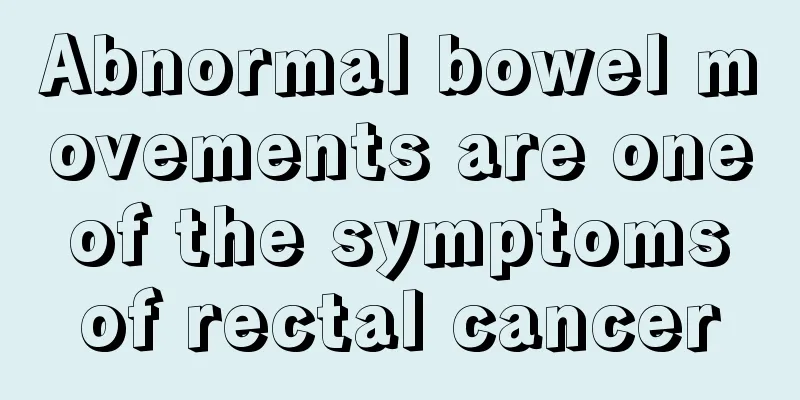How painful is angina?

|
The elderly are often prone to angina pectoris. Angina pectoris mainly refers to insufficient blood supply to the coronary arteries. At this time, the myocardium will suffer from temporary ischemia or angina pectoris due to lack of oxygen. This type of disease seriously affects the patient's normal life, and the pain is unimaginable for ordinary people. Many people don't understand this pain very well. So, how painful is angina pectoris? (A) Nature of angina pectoris: It should be characterized by squeezing, tightening, suffocating, heavy and stuffy pain, rather than sharp or grasping pain, short-term stabbing or electric shock-like pain, or chest tightness that persists day and night. In fact, it is not "colic". In a small number of patients, it may be a burning sensation, tension or shortness of breath accompanied by a tightness in the throat or above the trachea. The pain or discomfort is mild at first, gradually increases, and then disappears. It is rarely affected by changes in body position or deep breathing. (B) Location of pain or discomfort: Pain or discomfort is usually located at or near the sternum, but may also occur at any level between the upper abdomen and the pharynx, but rarely above the pharynx. It may sometimes be located at the left shoulder or left arm, and occasionally at the right arm, lower jaw, lower cervical vertebrae, upper thoracic vertebrae, between the left shoulder blades or above the scapula. However, it is rare for it to be located in the left armpit or under the left chest. Patients often need to use their entire palm or fist to indicate the range of pain or discomfort, and it is rare to use only the tip of one finger to indicate. (3) The duration is 1 to 15 minutes, mostly 3 to 5 minutes, and occasionally up to 30 minutes (except for intermediate syndrome). Pain lasting only a few seconds or discomfort (mostly a feeling of stuffiness) lasting a whole day or several days are not like angina pectoris. (IV) The triggering factors are mainly physical fatigue, followed by emotional excitement, climbing stairs, walking fast on flat ground, walking after a full meal, walking against the wind, even straining to defecate or raising the arms above the head, exposure to cold environment, drinking cold drinks, pain in other parts of the body, as well as emotional changes such as fear, tension, anger, and worry can all trigger attacks. The pain threshold is low in the morning, and slight labor such as brushing teeth, shaving, and walking can cause an attack; the pain threshold is higher in the morning and afternoon, so heavier labor may not trigger an attack. The discomfort that occurs after physical activity rather than at the time of physical activity is not like angina pectoris. Physical activity plus emotional activity is more likely to trigger an attack. Spontaneous angina pectoris can occur without any obvious triggering factors. Angina pectoris is a common disease. Especially as patients get older, the incidence of angina pectoris will become more and more frequent, and the pain will become more and more severe. Therefore, we must not ignore this disease. We should take more measures to prevent this disease and maintain an optimistic attitude. |
<<: What are the causes of chronic gastroenteritis?
>>: What are the dangers of bacterial seminal vesiculitis?
Recommend
Recipe for soaking dodder in wine
Everyone should know that Cuscuta is a very preci...
How is the mid-term treatment effect of nasopharyngeal carcinoma
The treatment effect of nasopharyngeal carcinoma ...
There are several varieties of sweet potatoes
Sweet potatoes have always been everyone's fa...
What to do if clothes get moldy in summer
We all know that clothes will definitely get mold...
What is the cause of thyroid cancer puncture needle tract metastasis
Thyroid cancer puncture needle tract metastasis r...
4 factors causing infection in laryngeal cancer surgery
Laryngeal cancer surgery is a contaminated surger...
A brief discussion of the three most common early symptoms of skin cancer
Skin cancer is a tumor disease caused by daily ex...
Can advanced ovarian tumors be cured after surgery?
Ovarian tumors can be divided into benign and mal...
What not to eat when you have acne on your face
Acne on the face is a common phenomenon. When man...
What medicine can cure dizziness quickly?
Vertigo is a common disease in life. It poses a p...
What to do if tongue cancer keeps recurring
Many tongue cancer patients think that they have ...
What's the matter with the white stuff coming out of the pimple?
White stuff is squeezed out of the pimple, which ...
How can I give birth to a daughter?
When fathers are pregnant, they usually discuss w...
The harm of amber pillow
Amber pillows are quite valuable and have a certa...
How to prevent kidney cancer metastasis
How to correctly prevent the metastasis of kidney...









